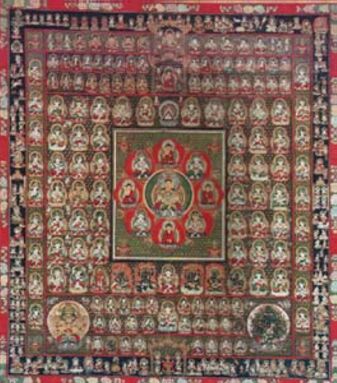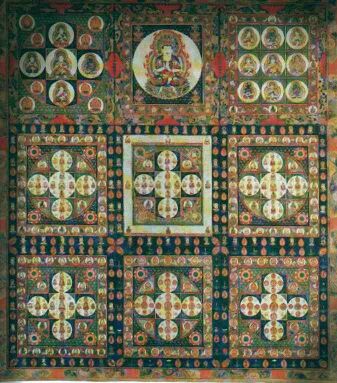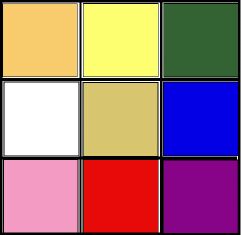| page 2 of 'Some Features, Attitudes and Practices in the
Shingon-Shu Kongoraidenha'
The Sammitsu also occur in an internal form within the being of the practitioner. The Shingon student learns to regard mudra as representing (amongst many other things) the total and perfected actions of the body; mandala as a representation (amongst other things) of the perfected mind; and mantra as representing (amongst other things) the perfection of communicative spirituality. The mandala expresses the interactive totality of the nature and structure of our being as well as the being of the enlightened ones. Each of the Sammitsu interpenetrate so that mudra is in mantra, mantra in mandala, mandala in mudra etc. Each is understood to represent the other in a different form and acts as a paradigm of it. These categories of mudra, mantra and mandala together encompass and represent all the great areas of training, attitude and ways of understanding experiences utilised within the esoteric trainings and can be combined in various manners to form meditational endeavours.

In Mikkyo the totality of the human state in all its potential is graphically represented by a special mandala known as the Taizokai (Skt:Garbhadhatu) The totality of a Buddha's wisdom in all its possible aspects is represented by another mandala known as the Kongokai (Skt:Vajradhatu).
 These two are contrasted to each and their contained principles
represent all the possible variations, choices, experiences and knowledges
that the human being can attain. In many temples these two mandalas will
be placed upon opposite walls as if reflecting each other and the Shingon
follower sits between them during their practice as if embodying both. In
our own tradition both mandalas have special didactic functions. The
Taizokai is seen as being manifest in the human body and the Kongokai
becomes the object of study and self uncovering.
 There are many other symbols used in Shingon trainings besides the mandala and in order to understand them one must be orally informed as to their meanings and implication. This informing and explanation is also part of the Shingon training itself and a student has to perfect the various practices and trainings given him beforehand in order to be both worthy of receiving it and to develop the qualities which make it possible to put them into practical significant use.
|